OpenAI’s newly unveiled GPT-4 Omni (GPT-4o) model promises to change the roles of finance professionals (and others) forever.
This advanced language model represents a major leap forward in artificial intelligence capabilities, offering improved experiences across text, voice, and vision.
“This is the first time that we are really making a huge step forward when it comes to the ease of use,” Mira Murati, OpenAI Technology Chief.
Some exciting new features include the ability to ask GPT-4o to translate languages using nothing but an image and soon, the ability to have a more natural, ‘real-time voice conversation and the ability to converse with ChatGPT via real-time video.’
OpenAI reports that GPT-4o “can respond to audio inputs in as little as 232 milliseconds, with an average of 320 milliseconds”. Impressively, this is very similar to a natural human response time during a conversation.
The best part though, is that GPT-4o is available to free users. However, it will have some usage limits.
Free users can access these features:
- Experience GPT-4 level smarts with greater speed.
- Get answers combining model knowledge and web info.
- Create charts and visualizations from data.
- Discuss photos you take by uploading them.
- Upload files for help with summarizing, writing, or analyzing (including Excel files).
- Keep conversations on track with built-in memory.
Table of contents
Introducing GPT-4o (OpenAI’s official update)
OpenAI’s official introduction to GPT-4o [Source: YouTube]
Alright, all that sounds great. But let’s get into the reason you’re here – to learn how GPT-4o can be used in finance and data analysis.
Let’s get into it.
How to upload Excel files and create charts in GPT-4o
1. Upload Excel spreadsheet files
You can now upload Excel, CSV, and other files directly to GPT-4o. No more copying and pasting data from your file into ChatGPT. Now that you can upload your files directly, it makes the entire process of analyzing complex data sheets a lot easier and less time-consuming. You can also upload other files like documents, PDFs, and more.
To upload an Excel file (or any file) to GPT-4o, simply click the paperclip icon on the bottom left corner of your screen:

Once you’ve clicked it, you’ll be able to upload your file.
It will then appear on your screen like this:

Below your file, you can write your prompts, ask ChatGPT to assess and analyze your file, create charts with the data, provide insights and advice, and more.
2. Analyze data and create charts
Once you’ve uploaded your data file, you can start asking questions to help analyze the data. You can even ask GPT-4o to create a chart based on the data you’ve provided.
Here are a few simple examples of the types of charts and graphs that GPT-4o can create:
[Note: We’ve used simplified fictional data for demonstration purposes.]
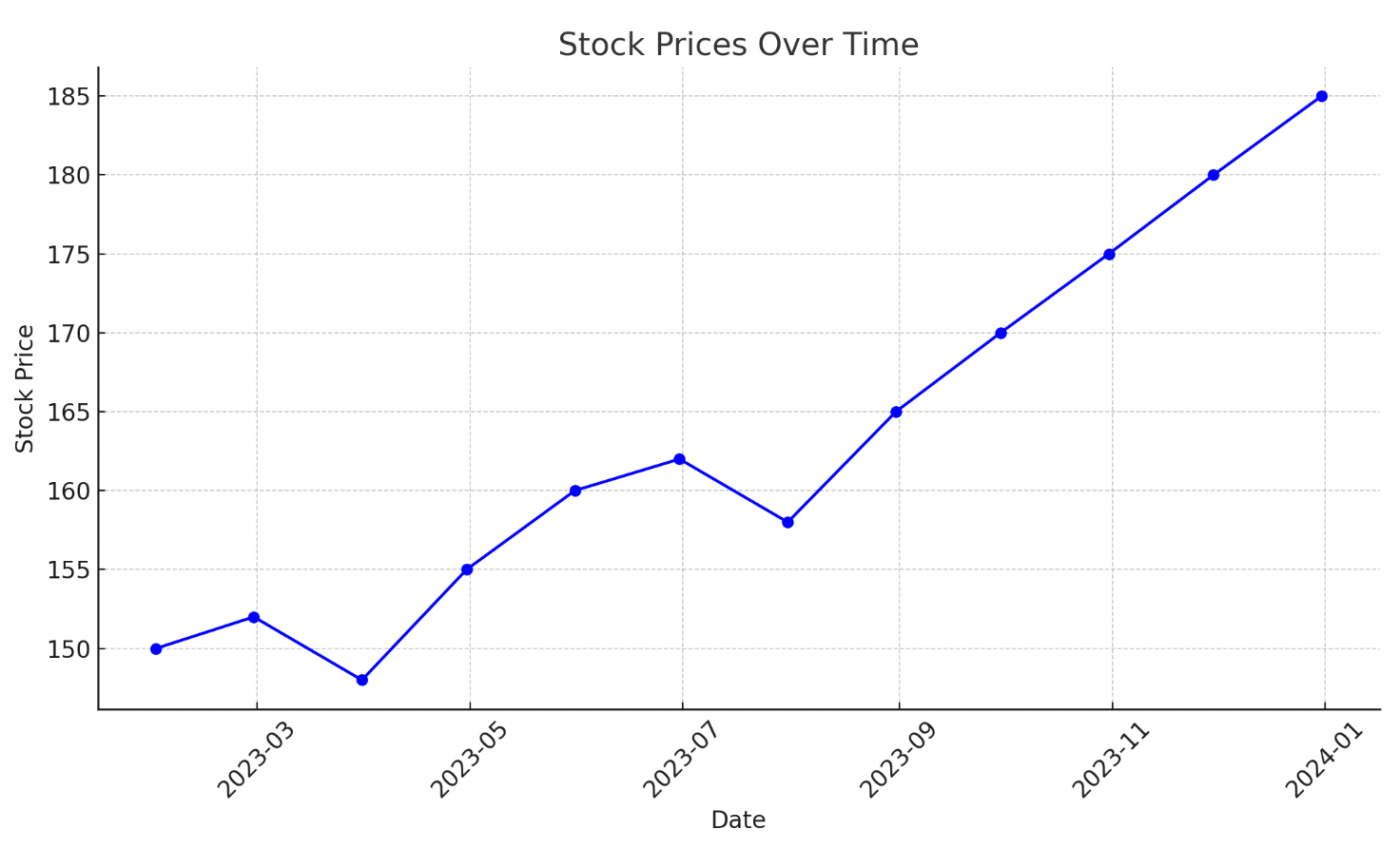
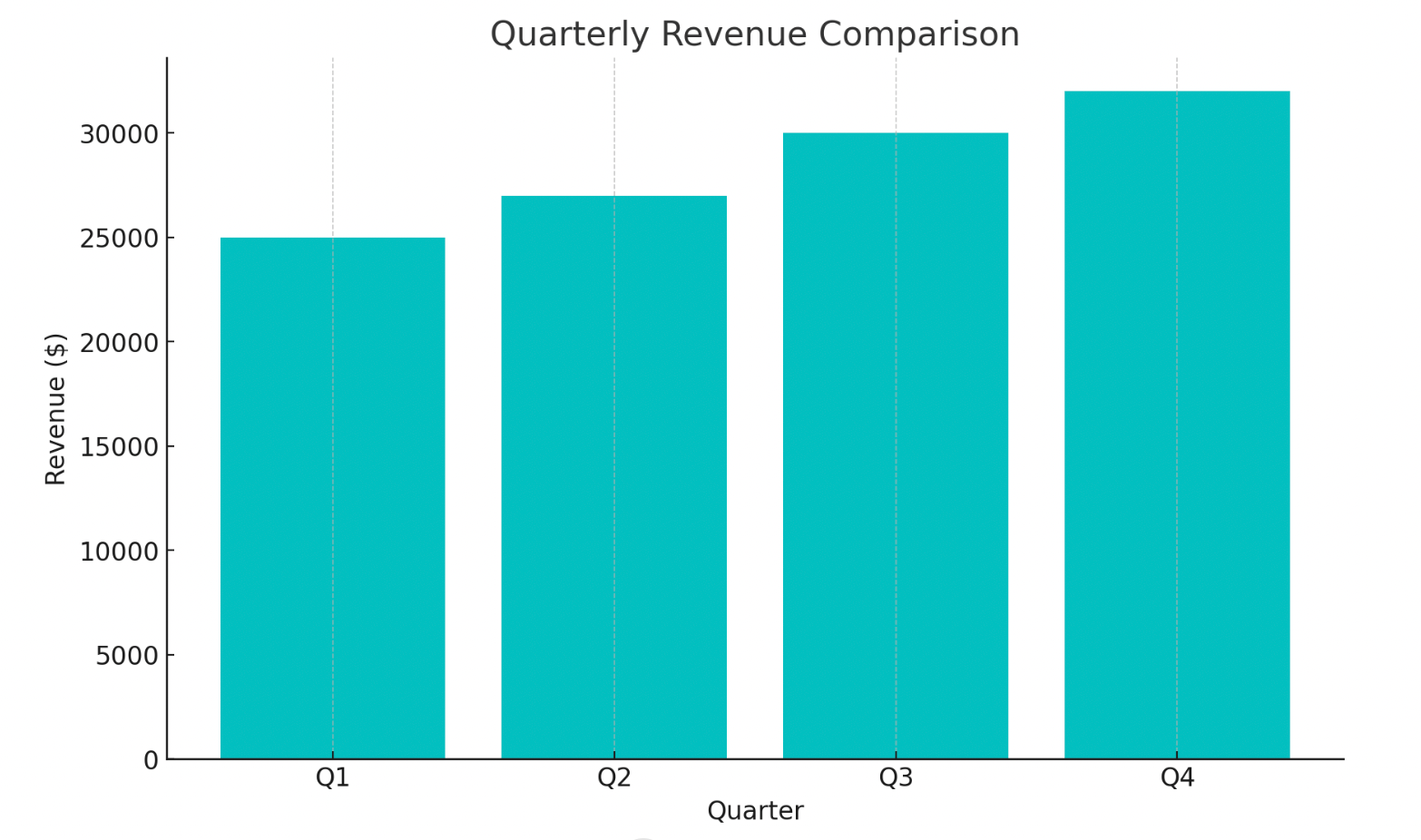
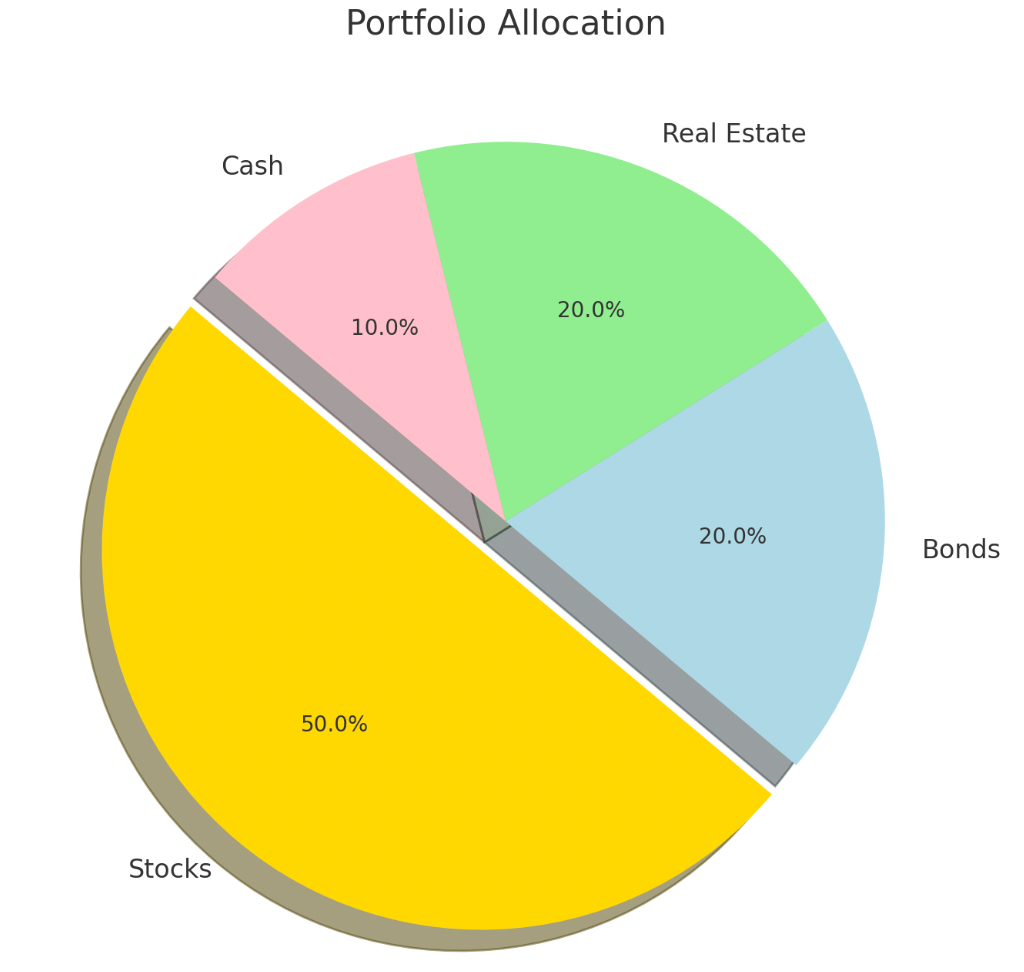
Analyzing financial data in GPT-4o
To help you get to grips with how you can use GPT-4o in finance or data analytics, let’s look at an example.
We’ve used some ‘dummy data’ to test and demonstrate how finance can leverage this technology in their roles.
So, let’s begin by assuming we’ve just uploaded the data below and GPT-4o has put it all into this nice, clean table for us:
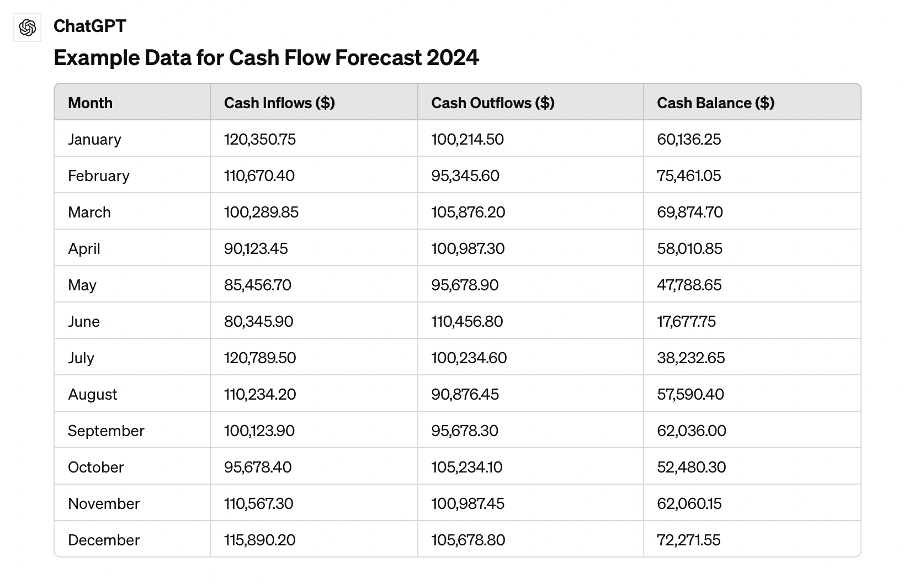
Now we’re ready to begin analyzing this data. So, we asked ChatGPT this question as a starting point:
Analyze the cash flow forecast for 2024 and identify any potential liquidity issues. Highlight any months where the cash balance is projected to fall below the minimum required level of $50,000.
When we asked GPT-4o about the monthly cash flow, it provided a list showing the cash balance and liquidity position for each month.
For example, January was noted as having a cash balance of $60,136.25 and no liquidity issues since the cash balance is above the minimum required level of $50,000.
Moving through the months, it provided similar insights. In May, GPT-4o reported a cash balance of $47,788.65 and therefore notified us that there is a liquidity issue identified because the cash balance was below the minimum required level of $50,000.
If we want to look into the data even further, we can ask more questions to get GPT-4o to perform data analysis.
Here are some examples of the questions we asked, and the responses that GPT-4o gave in return:
Q. Which months have the lowest cash balance, and what could be the potential reasons for this?

Q. Calculate the average monthly cash inflows and outflows for 2024.
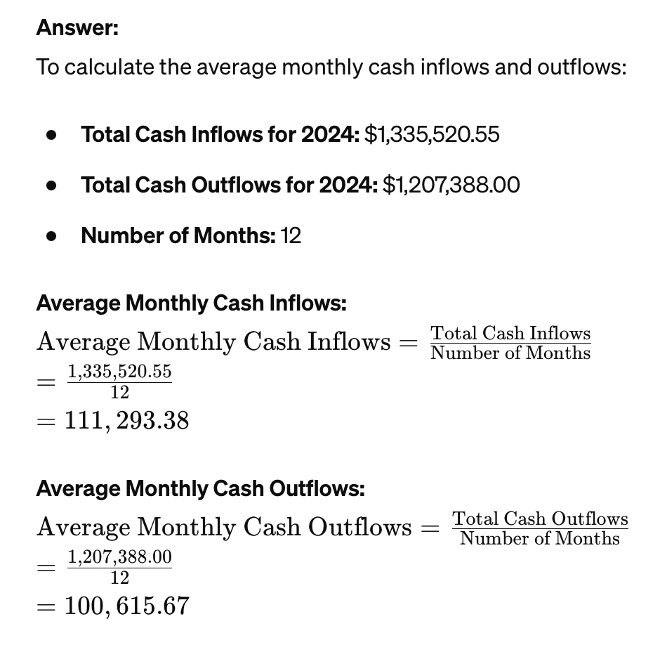
Q. Identify and explain any months where cash inflows are significantly lower than average.
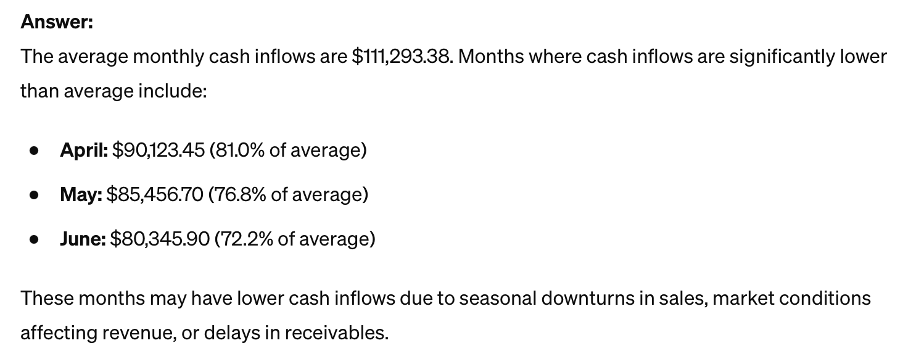
We’ve used quite a simple example, but it shows just how well GPT-4o can analyze financial data. We suggest trying it out for yourself and seeing what types of insights you can get back from it.
By leveraging GPT-4o, you can process and analyze data to discover deeper insights and improve decision-making.
How to use Gemini AI with Google Sheets
Google’s latest breakthrough in artificial intelligence, Gemini, has many finance pros anticipating its transformative potential in data analysis and decision-making.
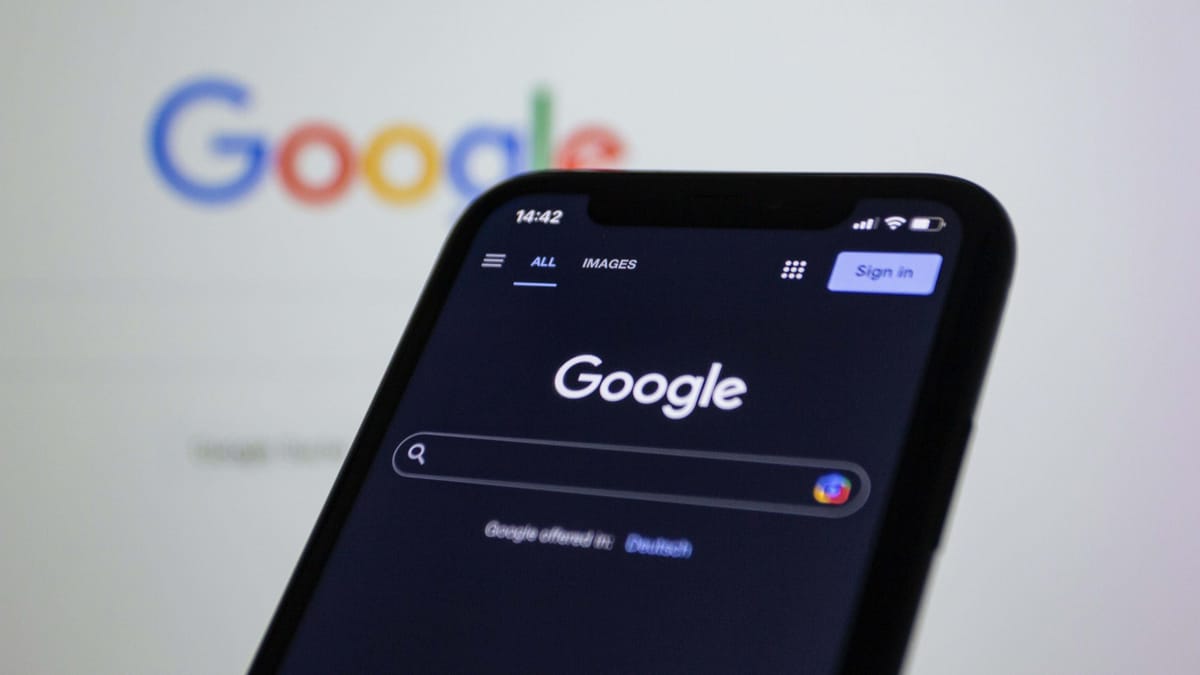
Voice conversations
Aside from data analysis, GPT-4o offers extra capabilities for natural conversations and streamlined workflows.
With the new Voice Mode, you can engage in voice conversations with the AI directly from your computer. This feature lets you do things like brainstorm ideas or discuss pressing topics in finance using speech input and output.
Desktop app – GPT-4o
OpenAI is launching a new ChatGPT desktop app for macOS, so you can now access GPT-4o via the app (it’s also available for both free and paid plan users).
This app integrates with your computer, so you can access the AI instantly using a keyboard shortcut (Option + Space).
From there you can ask questions, take screenshots, and discuss them directly within the app.
The desktop app also offers features like screenshot capture and annotation, making it easier to collaborate with the AI on visual content or seek clarification on specific elements within an image. This might be particularly useful if you want help analyzing charts, graphs, etc.
Math problems with GPT-4o
OpenAI posted the video below to demonstrate how you can use GPT-4o to help with math problems.
It’s interesting to see how well this AI tool performs mathematical problems. Perhaps it’ll be just as useful for helping with things like financial formulas or calculating metrics for your next report, etc.
Of course, it’s important to double-check the answers you get to make sure you’re getting accurate responses!
FAQs
What is GPT-4o?
GPT-4o is OpenAI’s latest flagship model that can reason across audio, vision, and text in real-time. OpenAI claims it’s a step “towards much more natural human-computer interaction.”
How is GPT-4o different than other versions of ChatGPT?
GPT-4o differs from other versions of ChatGPT by offering improved performance, including faster response times and better handling of complex queries, while retaining the comprehensive language capabilities of GPT-4.
Is GPT-4o free?
Yes, GPT-4o is available to users of the free version of ChatGPT.
Is GPT-4o better than GPT-4?
GPT-4o is considered as an optimized enhancement of GPT-4, offering better performance in terms of speed and efficiency. However, the core language capabilities remain consistent with GPT-4.
Is ChatGPT 4o available?
Yes, GPT-4o is now available to users.
What does GPT-4o do?
GPT-4o can assess, summarize, and converse with users via text, visuals, and audio. It also answers your queries by combining both model knowledge and information from the internet, helping to provide even better insights.
What’s new about ChatGPT 4o?
GPT-4o is a new, optimized version of OpenAI’s GPT-4, designed to enhance performance and efficiency while maintaining the robust language understanding and generation capabilities of its predecessor. It can now converse with you using images, audio, and video.


